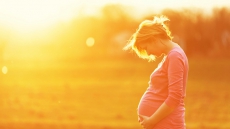It wasn’t just the leadership opportunities or seeing his best friends or even escaping months stuck at home because of the coronavirus pandemic that had Rory Sederoff thinking 2020 would be one of his best summers ever.
This would have been the Toronto teenager's 15th year at Camp Walden, a sleepaway camp in upstate New York where he has spent every summer since he was 3 months old. He had already started rehearsing the speech he was going to give at the end-of-summer banquet, and imagined the exact tree by the waterfront that he would pick to be named in his honour.
For 14-year-old Rory, whose parents work at Walden, camp is where he feels most like himself — disconnected from screens and open to new opportunities.
“This summer, I would do many things that I won’t really be able to do again,” he said. "It’s a summer filled with opportunities that now won’t happen. There’s no way to get that back. It’s gone.”
Camp Walden would have opened this week, but like most overnight camps across the country, it is closed this year because of virus-related state restrictions. For millions of kids, losing camp is another in a list of missed childhood milestones and experiences, big and small, due to the pandemic.
And while some activities can be pushed online or rescheduled, the camp experience has an expiration date. It doesn't translate digitally since it relies on kids being together, outside, stepping out of their regular lives and into new challenges and fun. People who have experienced summer camp often have a “10 for 2” mentality, counting down the months all year until they can spend their cherished eight weeks at their “home away from home.”
An estimated 20 million U.S. children attend summer camp each year, and the $18 billion industry employs over a million seasonal workers, according to the American Camp Association. The association has more than 3,100 camps accredited or seeking accreditation in its network.
Strict policies at most camps limit or ban the use of personal technology, which fosters a sense of community and contributes to the uniqueness of camp.
“They’re only looking at each other, eye to eye, heart to heart, head to head,” said ACA President Tom Rosenberg.
Rosenberg calls camp the optimal learning environment for social and emotional skills. First-year campers would be learning independence and some basic confidence. Those going into their sixth summer, say, might have been developing leadership and relationship-building skills.
“It literally changes lives,” Rosenberg said. “You come home different.”
Camp Walden's director, Robyn Spector, doesn't know life without camp. This would have been her 40th summer there, and she has held nearly every role since she started as an 8-year-old camper. Camp is where she “learned how to be good at things. I learned how to be kinder. I met my husband. I brought my kids at 12 weeks old.”
Spector does most of the hiring at the camp, which has about 500 campers and 270 staff each summer. She finds joy in “being part of something that is so special to more than 1,000 people each summer.”
Rosenberg acknowledged that attending sleepaway camp is a privilege, one that many kids can't experience because of the hefty price tag or because the tradition of camp may be unfamiliar to them. He said outreach to those children is a focus for him and other camp directors.
Annabelle Bridglall, 10, would have been spending her fourth summer this year at Forest Lake Camp in the Adirondacks on a scholarship program started about a decade ago and funded by the camp's alumni. She is one of about 20 campers who received financial assistance to attend Forest Lake this year.
Forest Lake's owners were pushing to keep camp open until New York state announced restrictions June 12 that prevented that. For Annabelle, who lives in the Bronx, the news was devastating.
“I love camp and I feel like I'm missing something," she said.
She says she'll miss standing on the tables cheering after meals. She'll miss Sunday campfires, and activities that she says she'd never have done otherwise: horseback riding, riflery, woodworking. “You have to be there to see the magic” of camp, she said.
Andy Pritikin, owner of Liberty Lake day camp in southern New Jersey, was thinking of kids like Rory and Annabelle when he decided to keep operating this summer, albeit with major changes.
“These kids who go to sleepaway camp, it’s like there’s been a death in their family,” said Pritikin. “They’re in grief mode.”
Between 500 and 600 kids -- about 80% of a usual summer -- will attend Liberty Lake when it opens in July. Pritikin has doubled his nursing staff, bolstered the maintenance and food staff, built hand-washing stations and purchased the state-required personal protective equipment.
He said he'll probably lose money this summer because of all the health and safety requirements, but as long as the state was allowing day camps, it was his way to help.
“This is a summer for kids to regain their childhood,” he said. “These kids are in a situation that they don’t even realize. It’s like Groundhog Day.”
Pritikin has recently taken more than 100 families on tours of the camp, he says. Usually, parents have probing questions about the camp's programs and what makes it special. This year, he says, parents are interested in just three things: getting their children outdoors, away from screens and interacting with other kids.
On one recent tour, a young boy looked longingly at one of the camp’s giant playgrounds; in past years, kids on tours would have just run over to it and start playing. This time, the boy stayed where he was and looked at his parents. “Mommy, we can’t go on the playground, right?”
Pritikin said the moment was heartbreaking.
“These kids remind me of a soldier coming back from two years of active duty. They are shell-shocked,” he said. “They’re going to love every aspect of what we do here -- even a watered-down, COVID-19 version of camp.”






